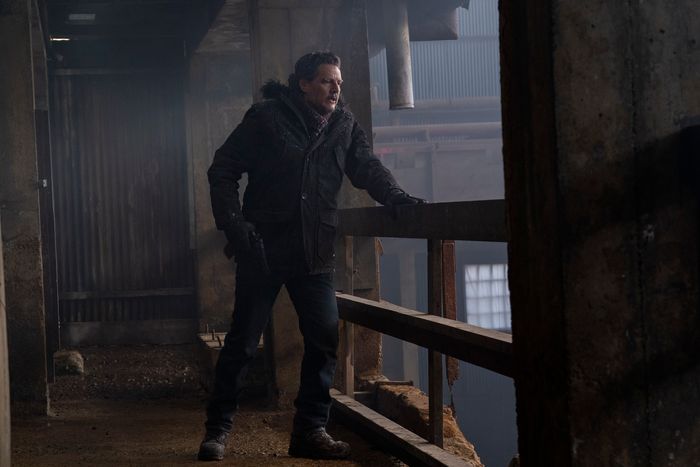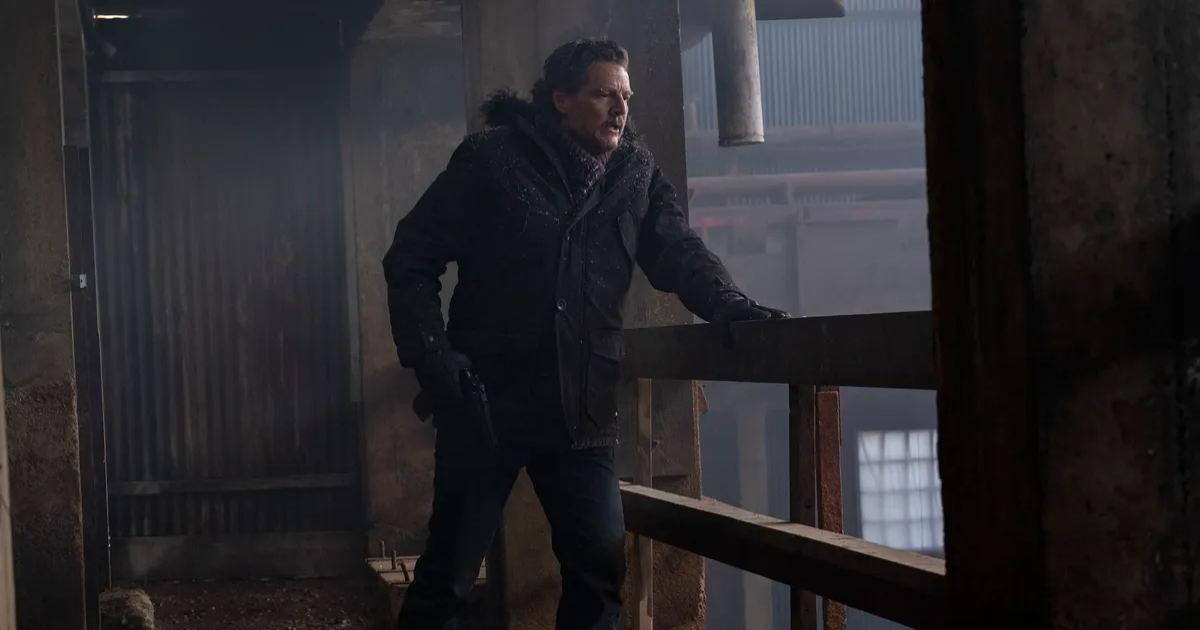
Photo: Liane Hentscher/HBO
Spoilers ahead for this week’s episode of The Last of Us, “Through the Valley.”
So now you know what The Last of Us: Part II players have been anticipating for years. Even if you went into this week’s episode lacking any familiarity with the source material, you might’ve had an inkling something big was coming based on the preview coverage in the lead-up to the new season. In particular, the new character Abby, played in the HBO adaptation by Kaitlyn Dever, was often framed as being “controversial,” referring to a fair bit of hubbub that kicked up when the game rolled out in 2020. “Through the Valley” gets to the heart of why: Established to be the vengeance-driven daughter of the surgeon who Joel (Pedro Pascal) killed in the climax of the first season, Abby finds and beats Joel into a bloody pulp before unceremoniously executing him as Ellie (Bella Ramsey) and Dina (Isabela Merced) watch helplessly from the sidelines. For viewers entering the scene cold, the death should come as a shock, especially as we’re just a scant two episodes into the season. But for players, Joel’s killing is the adaptation’s Red Wedding threshold, an event horizon they knew was coming and were morbidly curious to see how everyone else would react to it. (Speaking of Game of Thrones, how many times will Pascal die for HBO?)
Joel’s end similarly arrives early in the game, just under two hours into what ends up being about 25 hours of play. As with any adaptation, it’s interesting to observe the differences within and leading up to the moment, and what showrunners Craig Mazin and Neil Druckmann (who also co-directed the game) chose to tweak is particularly intriguing. To begin with, there is no elaborate battle at Jackson in the source material, which tightly contains the action to the core characters. In the show, Joel is with Dina when he encounters Abby and her band of former Fireflies; in the game, he’s with Tommy (played in the adaptation by Gabriel Luna). Most notably, we also see Abby end Joel’s life in the episode, her golf-club shank sliding into his neck like cake, in a way that’s more punishing than the original, which opted to render the killing as a silhouette on the periphery of the shot. All these choices are fairly minor in the grand scheme of the story, but each portend subtle changes to the interiority of all these characters as they move forward in the narrative.
So why the controversy? Parsing out the threads of any discourse is always a slippery task, but the foundational noise came from a vocal corner of the game’s fan base that complained of feeling “betrayed” by Joel’s death. After spending hours upon hours of The Last of Us: Part I embodying Joel, experiencing his trauma and subsequent pseudo–redemption arc, and then spending years afterward wondering how he’d develop in Part II, they felt his ignoble death did the character and their own emotional journeys dirty. Parts of the online response also featured shades of good ol’ Gamergate culture-war nonsense; in places, the two constituencies overlapped. Some were apparently rankled by Abby’s depiction in the game: Simply put, she was designed with the physique of a wrestler, and I don’t have to tell you how some bing-bongs don’t like looking at a woman with attributes they traditionally associate with a man. There were other strands of bigotry at play: A trans character factors prominently much later in the story, plus the fact that Ellie is queer, a trait established in Left Behind, an add-on chapter to Part I that was also incorporated into the show’s first season. Video-game fandom has historically featured venomous wings of extremism, and the online vitriol got so bad that Abby’s voice actor and motion-capture performer, Laura Bailey, started receiving death threats, some even targeting her newborn son.
The irony is that spurring feelings of hate is a key aspect of Part II’s underlying project. Druckmann had framed Part I as being about the universal and warping nature of love — a talking point carried over to the adaptation — and he subsequently framed the sequel around an interest in exploring the oppositional feeling of tribalism. So doing Joel dirty is central to how the story wants you to feel, and Abby becomes the vessel through which the project challenges the audience’s relationship with the feeling. The game primarily does this by making you play as Abby, at first in the opening stretch when you’re initially dropped into her shoes without context, and then long after you watch the cutscene where she kills Joel. Making you play as the antagonist is supposed to disrupt your sense of them being an antagonist, but players still have to be actively present within the thorny dissonance of embodying a character who committed an action they despised before they can get to the other side of that emotion. This isn’t a move available to the show, but television has plenty of other ways to make you empathize with characters previously presented as villains — again, just look back at Game of Thrones. Casting Dever, a reliably great performer, goes a very long way, and the series has already built out more scenes around Abby, even this early into its narrative.
There are legitimate critiques to be explored in terms of where The Last of Us: Part II’s story ultimately goes, and I’m curious to see what adjustments Mazin and Druckmann will make to account (or not) for those, but we’ll get there eventually. For now, I’m more interested in how this adaptation seems to be amping up the emotions of the game, which generally comes off restrained in its storytelling. Ramsey’s Ellie is more petulant, abrasive, and reckless compared to Ashley Johnson’s original performance of the character. Mazin’s script makes Ellie’s fiery teenage rebellion more explicit, thus accentuating the friction between Ellie and Joel, which in the source material is more ambiguous for much longer. Even Joel’s inner turmoil is made more explicit in the show, which brings it to the surface in his first scene with Gail, the postapocalyptic therapist played by a terrific Catherine O’Hara. But the whole “controversy” around how the story does Joel a disservice by having him be killed so violently and ignobly by Abby? Don’t worry about it. In fact, some players are now even complaining that Dever isn’t as ripped as the original Abby, illustrating how, when it comes to the whims of fan bases, there’s a limit to the extent to which you should care.
